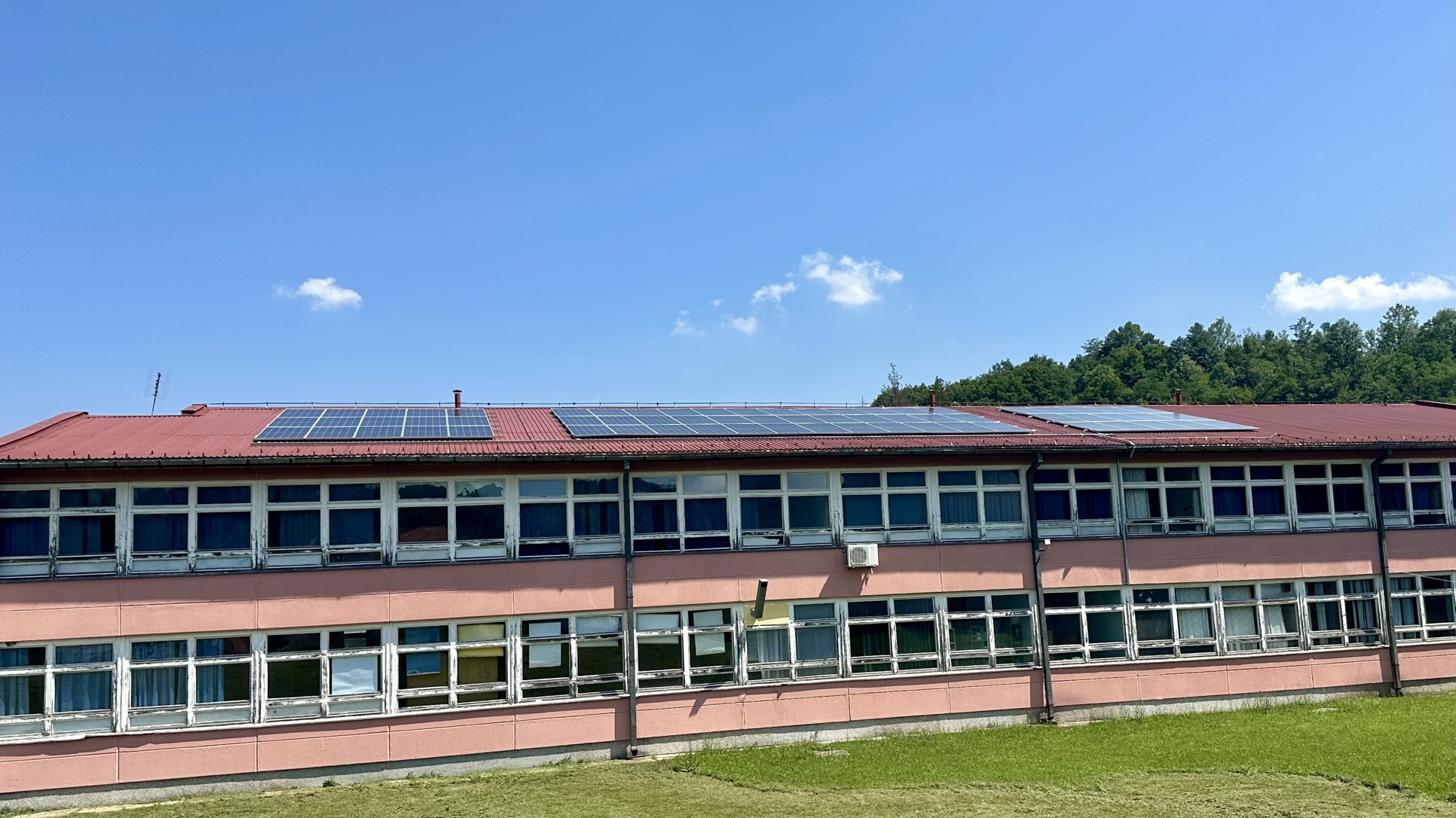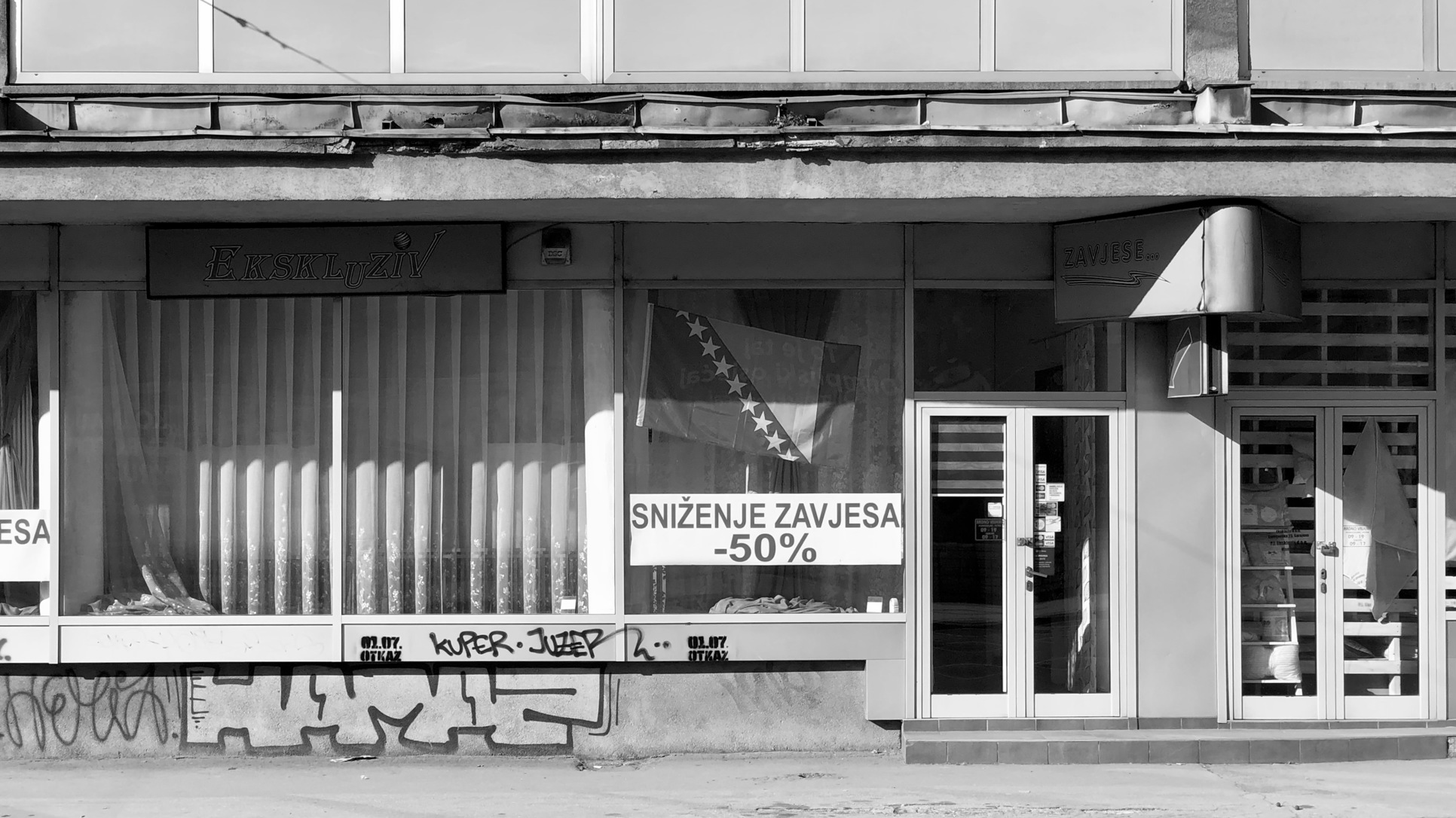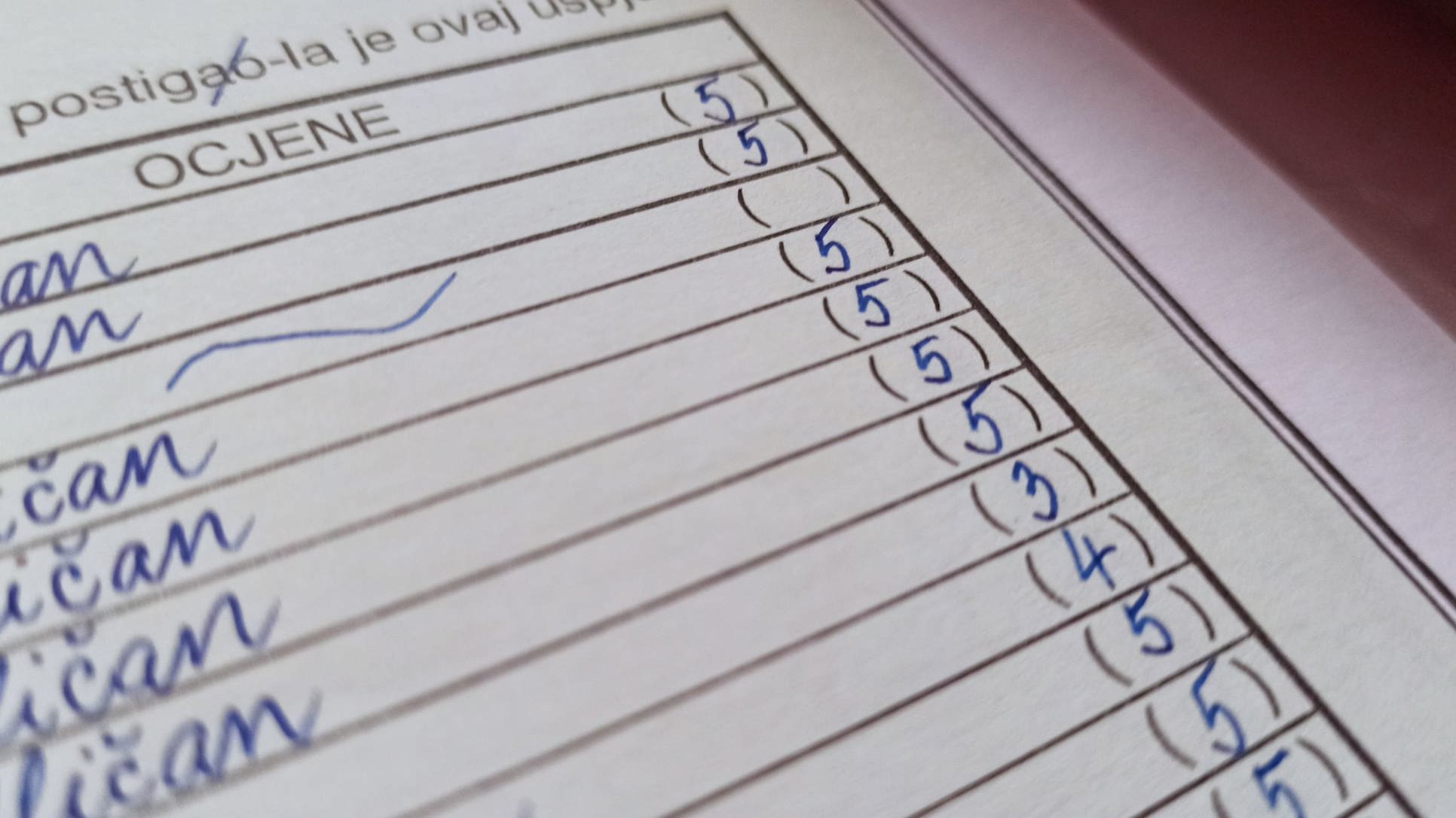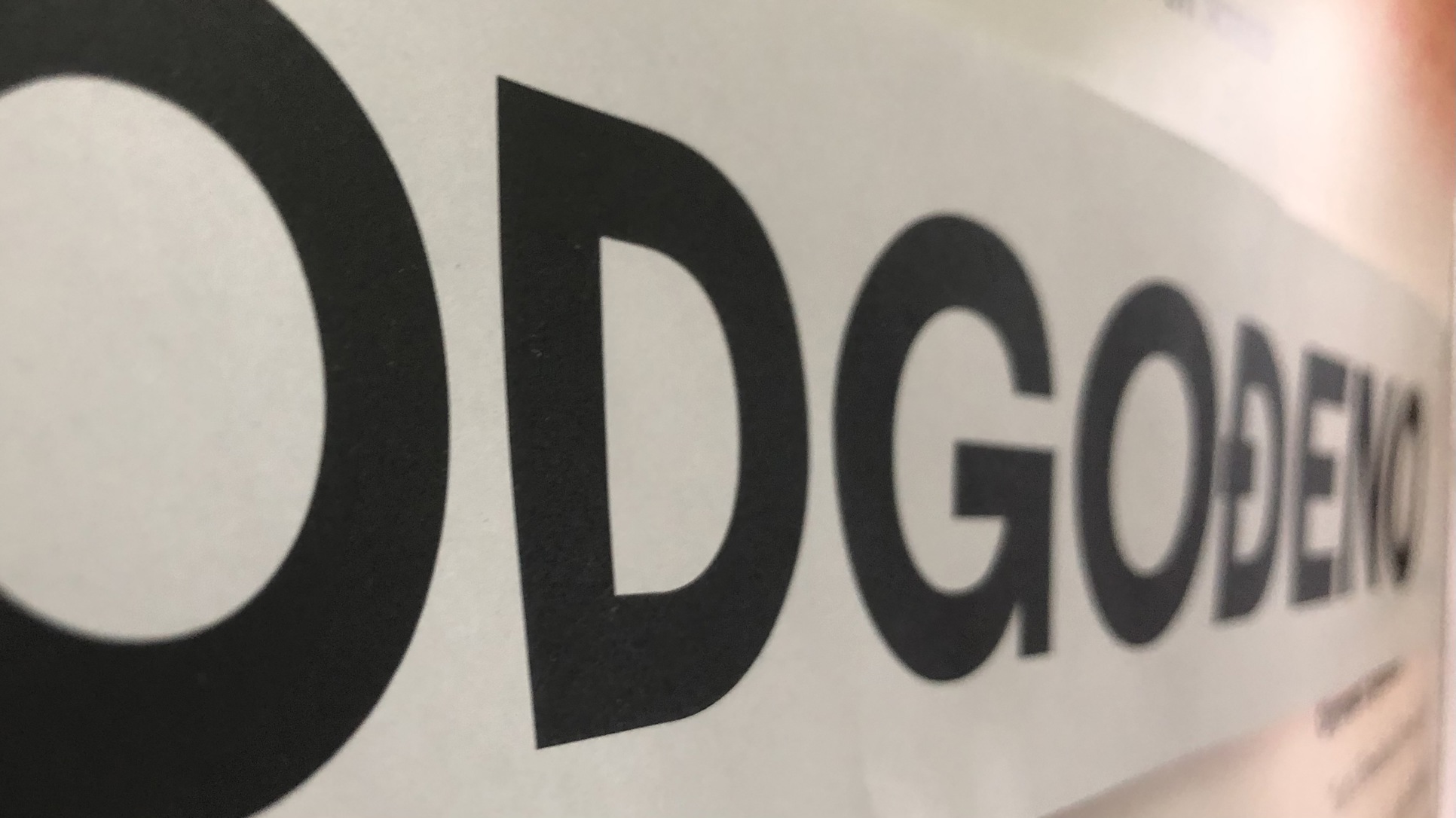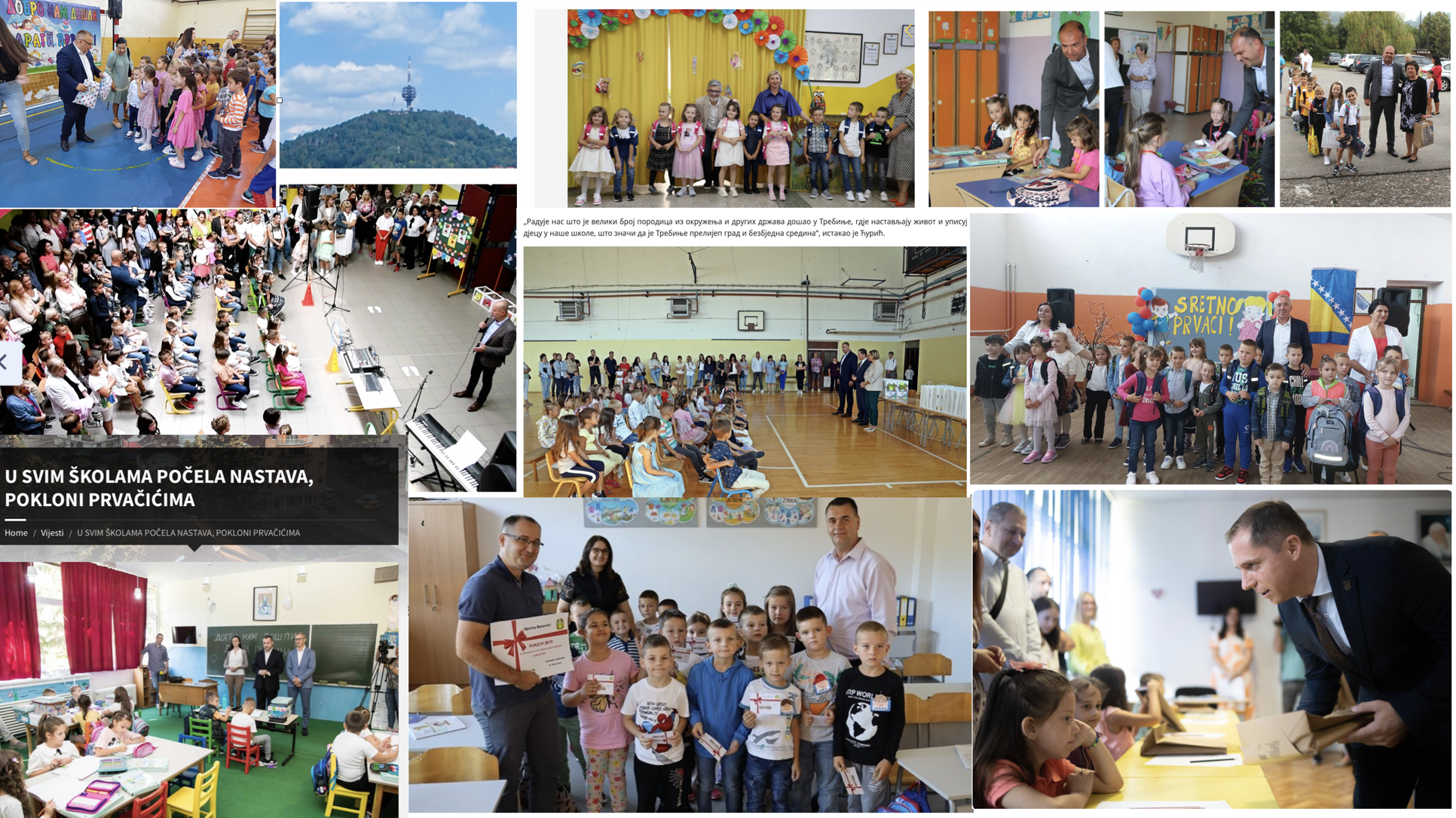The Vuk Karadžić High School Center from Lopar is the first prosumer in Bosnia and Herzegovina: it produces electricity from solar energy through solar panels on the roof of the school building and delivers its excess to the power company in the Republika Srpska. When there’s no sun, it withdraws electricity from the grid. At the end of the year it calculates to whom they gave and how much, and whether someone is indebted to someone else. They were the first in Bosnia and Herzegovina to meet the legal procedures and obtain a contract with an electrical company. Now everyone interested can monitor the production and consumption of electricity.
The high school center enrolls four class courses: computer and programming technician, business and IT technician, locksmith and welder, and one high school class, with one year enrolling a computer and programming technician class, and the second year a business and IT technician class. In the last few years, there has been major interest in locksmiths and welders because those professions are in short supply, but in general, there are fewer students. At the end of 2023/24 less than 40 students graduated from elementary school in Lopara, and slightly more than ten in neighboring Priboj. However, the director of the Secondary School Center, Boro Stanić, hopes that all the changes taking place at the school will attract more students — last year, for the first time in six years, four classes were enrolled, while previously there were always three, so he hopes that this will be the case in the upcoming year as well.
This school, with 136 students, covers an area of about 4,500 square meters and employs 36 people. Salaries at the school range from 1,550 to 1,900 KM and the principal's salary is not the highest. Earlier, during practical classes, the students made solar lighting for the school parking lot. Now, instead of between 800 KM and 1,500 KM that they used to pay before, they pay about 100 KM for electricity. The excess money that remains in the budget of the Municipality of Lopara, which is about 9,000 KM for the year, can be directed to meeting other needs of the school: maintenance, renovation of the workshop for practical teaching, and the like.
Stanić explains that the school's equipment is being improved — it has seven televisions, a sound system, and new computers. The municipality helped with the reconstruction of plumbing in the gymnasium, but small purchases such as switches, fuses, sockets, as well as minor breakdowns, are still a problem...
“The agreement with the head of the Municipality is that the money we used to spend on electricity will be redirected to other needs of the school. In the Republika Srpska, all needs of secondary schools, except for salaries provided by the Ministry of Education of the RS, are covered by the municipalities. It's a bit of a problem that payment is centralized and that school accounts have been abolished. Considering all these changes, this year we will have greater demands on the Municipality and we hope that they will be approved by the budget, although there is always a problem with money, especially since Lopare is an extremely underdeveloped municipality — and then immediately less is invested in education and culture. Using the example of the solar power plant, we showed that the lack of money is not a reason to give up something,” says Stanić. His idea is to change the carpentry of the school building, install a new facade that will create thermal insulation, and switch the entire school heating to electricity in the winter.
“The goal is to eliminate coal altogether and be energy independent”, says Stanić.
Stanić says that the solar panels on the roof of the school were installed in three days, and the electricity was turned on immediately, but that act was preceded by an administrative procedure that lasted several months and cost about 80,000 KM. All these costs were covered by donors such as the Open Society Fund, Reset, and others. At the presentation of this project for the local community, it was said that the installation of the solar power plant at the school should serve as a channel for informing people in the local community so that they would be interested in doing the same for their homes.
“Now the power plant is permanently owned by the school, and the ultimate goal is to be completely energy independent, and not only that but to help the community to better understand the energy transition and to establish an energy community. At the beginning of this process, we surveyed 120 of our students, teachers working at the school, and parents — and asked them what they knew about green energy. Later, we gave a lecture to the students and organized a public panel on renewable sources in the Cultural Center and then polled everyone again with the same questions and got completely different answers”, says Stanić.
In this particular case, the first step was taken by the Municipality of Lopare when it signed an agreement on green transition with the ATS Institute and the NGOs ‘Reset’ and ‘Freedom Front.’ They named the school center an organization that has the potential to be a good example. The school board accepted and approved the changes. They created a project, audited it, and got a certificate, and an energy permit... Now they are mostly helped by non-governmental organizations: Damir Miljević from Reset, Mervan Miraščija from the Open Society, as well as people from the Institute for Advanced Technologies, Elektrodistribucija Bijeljina and the Ministry of Energy in the Government of the RS, and face retaliation from citizens who often raise doubts or accusations on social networks…
Before the war, close to 17,000 people lived in Lopara, which was declared an extremely underdeveloped municipality by decision of the RS Government. Now there are about nine thousand. Recently, a businessman returned from Austria and planted an orchard, allegedly the largest in the Balkans, and due to the lack of domestic labor, he hired workers from Nepal through the Employment Agency, according to director Stanić.
According to the spatial plan of the RS for the period from 2015 to 2025, Lopare has been designated as a nature park and the association ‘Guardians of Majevica’ has submitted an initiative to declare Majevica a protected area — a nature park. However, this municipality between Tuzla and Bijeljina has been at the center of attention since mid-2024 for another reason — during the COVID-19 pandemic from 2020 to 2022, test mining was carried out there with the aim of researching the presence of lithium, and it was determined that in the depths of Majevica they find large quantities of ore necessary for making batteries for mobile phones, cars... The Guardians of Majevica warn that the opening of the mine will not be good for the population because sulfuric acid will be used to separate the ore from the rocks, which is also harmful to the air. water, and land, and they also warn that in places where mining research was done from 2020 to 2022, the vegetation has not been restored even after two years.
Although the mine should be in a location that is about 800 meters away from the school and a petition was signed against the mine in Lopara, Stanić says that there is not enough information, and therefore no opinion on the mine.
“I have lived here for 14 years and have two small children. I bought an apartment, I want to stay here to live; I go to work and pick plums — the daily wage is around 100 KM, and I try to contribute to the community. I have problems with the residents of Lopar — they accuse me of stealing electricity and selling it. On social networks, they accused me of taking a donation from the company that did the mining research — people gave us LED lighting and I gave them a thank you note. I don't know about the mine, I don't have an opinion because I don't have the information, I don't know what technology they will use, I don't have feasibility studies... There was something about it partially in some public discussion. After all, whatever is decided — we will not be asked, but I think that mine is being used for pre-election political purposes. If it is proven that the mine harms health and the environment, I am against it, but I am waiting for the evidence — what has happened so far is not exactly [known],” says Stanić.
At the beginning of the summer break, he is focused on enrolling a new generation of students and on changes in the school building — he collects projects and offers for carpentry and warming of the building by installing a facade. He is aware of political games — he was appointed by the Government of the RS, in which the SNSD is the majority, and the power in the municipality is in the hands of the SDS, which is the opposition at the level of the RS. But his focus is green energy and the possibility for as many people as possible to use the benefits of solar power plants like the school's, located on the roof with switches, or switches in a small school room on the ground floor, on the door of which is still written: Youth Club. He says that he would like to and will do everything he can for as many ‘sunny’ schools as possible to go through the labyrinth of administrative procedures and become prosumers themselves, because that means a healthier environment and more money for other needs of the schools.


